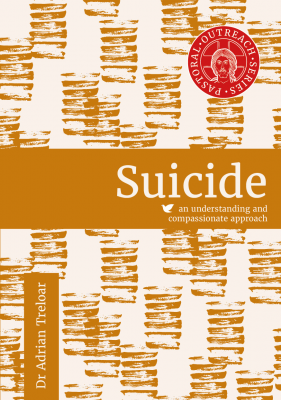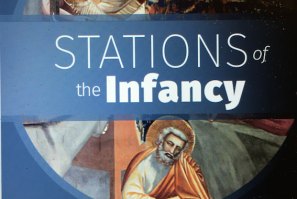Suicide: An understanding and compassionate approach

Suicide: An understanding and compassionate approach by Dr Adrian Treloar - Redemptorist Publications, £5.99
The author, a Christian consultant and psychiatrist, does exactly what it says in the title: through individual stories and his own experience he provides a pastoral approach that is understanding and compassionate. Suicide, as he says "is a huge tragedy for those who kill themselves, and devastating for those left behind". In seven short chapters, plus a conclusion, he highlights key aspects in dealing with this touching tragedy, which, as he says "should demand the best of any Christian community".
He covers aspects of prevention, noticing warning signs, and urging appropriate medical care and treatment for those with suicidal tendencies. Over 6,000 suicides a year occur in our country, mainly by hanging, poisoning, drowning or jumping. Most are as a result of psychiatric illness, and occur mainly between the ages of 30 to 60, three quarters by men, although suicide in old age is not unknown. He lists key risk factors, which might be severe mental illness, drug or alcohol abuse, a history of trauma or abuse, unemployment, social isolation, family breakdown, imprisonment or chronic pain.
Supportive presence is central, as being listened to and taken seriously when a person is feeling worthless, unwanted or hopeless may lead to a change of mind from an individual seriously contemplating suicide. The author reminds us that having a Christian faith does not prevent suicide. But neither does Christian faith condemn those who have succumbed to suicide. The author provides examples of sound non-judgmental pastoral care for individuals or families affected by the tragic death of a loved one, with compassionate funeral preparation. Suicide victims are as worthy of a dignified Christian send-off as anyone else, and loved ones are sometimes not aware of the tender compassion Christian ministers will show in such cases. This may also involve ongoing support emotionally, practically and spiritually. "What if?" and shame might need to be faced full-on, for example, or regret, guilt or self-blame.
Sensitive and sensible, rooted in compassion, this will bring consolation and peace not least to those who have lost loved ones or friends to suicide. I heartily recommend it.
© Denis Blackledge SJ


















